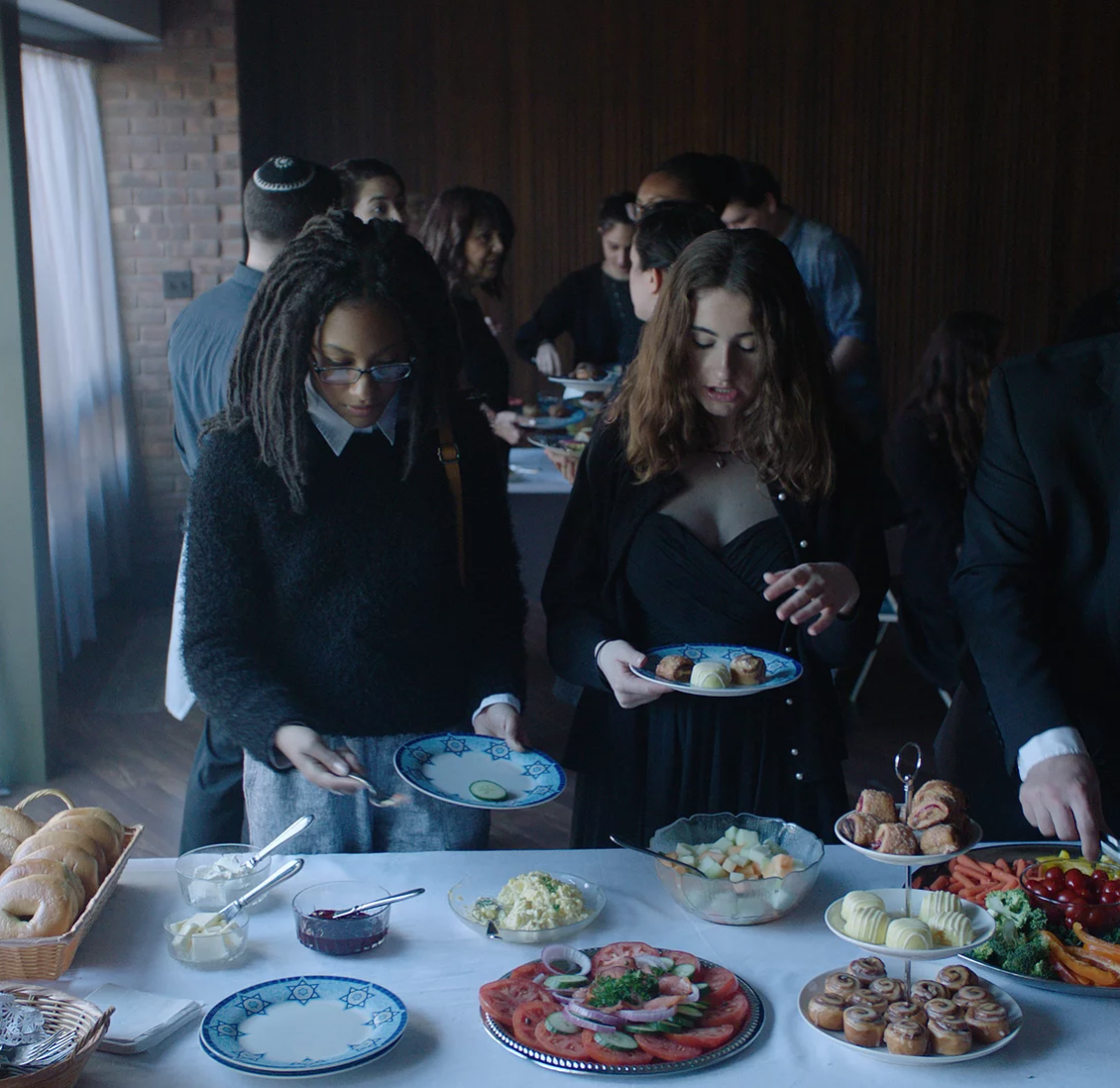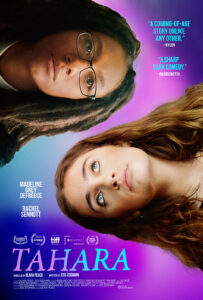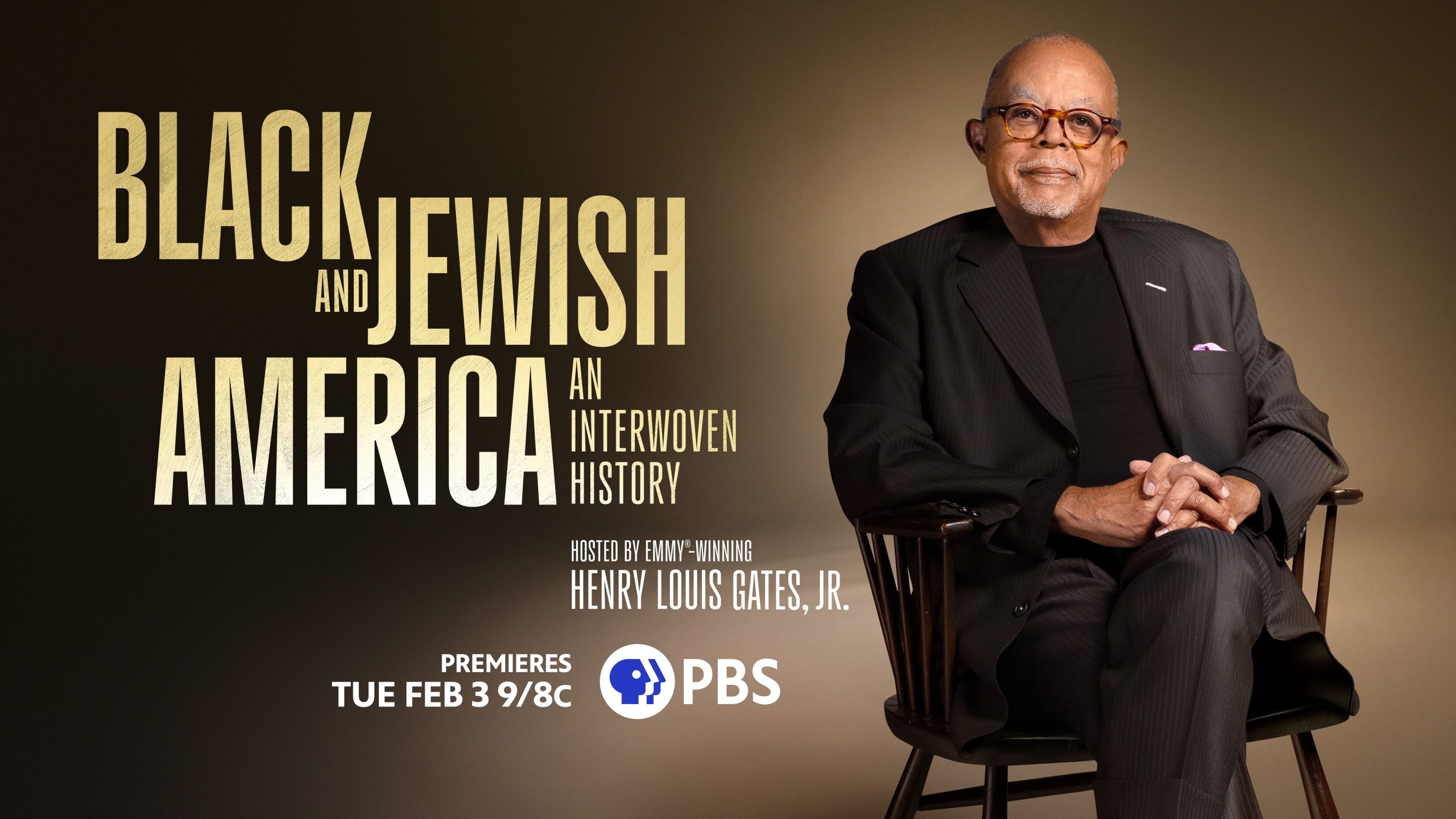
The cast and crew behind Tahara discussed the film with Solzy at the Movies one day after the film’s premiere at Slamdance.
Director Olivia Peace, screenwriter Jess Zeidman, and stars Rachel Sennott and Madeline Grey DeFreece were on hand for the junket at the Treasure Mountain Inn. The world changed so much in the month and a half that followed the Tahara premiere. It feels like this interview is very much a time capsule of January 2020. The further we got from Slamdance 2020, it felt best to hold the interview for the film’s release. The following transcript covers everything discussed during the junket. It’s also the primary reason why I no longer really ask many fest-related questions during fest junkets these days! This interview is already dated before I pressed publish!
Tahara starts its theatrical run on at New York City’s Quad Cinema on June 10, 2022. Additional markets will follow.

Jess, when did you first get the idea for the script for Tahara and can you discuss the writing process?
Jess Zeidman: I wrote this script as part of a class that I took at Northwestern University as an undergraduate student called Writing the Micro-budget Feature. I wrote a micro-budget feature—I’m a good student. I was really interested in writing about my faith because I’m the granddaughter of Holocaust survivors—I’ve seen those movies. I’ve heard those stories time and time again but I didn’t really see any movies about contemporary Judaism that aren’t about men or about—I love Hasidic women but that sort of lens. I hadn’t seen any about sort of more Conservative or Reform, Jews. I think I see lot of stuff about sort of extra curricular Hebrew school, which was a huge part of my life—so much so that I made a movie about it. I was really interested in that as a setting and that as a theme. I took that and I wrote what I wrote best, which is long scenes with friends fighting, and that’s sort of how I ended up where I was. I gave myself the limitation of a micro-budget so that’s one location, no large crowd scenes, no huge VFX or special things sort of budget.
Olivia, how did you first become aware of the screenplay and how long after reading the script did you decide you have to direct the film?
Olivia Peace: Jess is telling a story where basically she Facebook messaged me, said she had a script, and then some time went by. I had actually just assumed she was just still writing it but apparently, she had sent it to the wrong email address. Once they sent the script to the correct email.
Jess Zeidman: To the correct email.
Olivia Peace: I read it and I got to the scene where Hannah is about to pop this zit in the mirror and I was like, Oh, I can see exactly how we’re gonna do this. It’s gonna be great. I’ve never seen this before.
We talked a lot and Jess was so generous with offering so much creative control, too, and just kind of handing this over to me. We talked about making it a square aspect ratio and adding animation to it because I come from an animating background. All of my films have some animated elements in them, too. After that, it was kind of off to the races.
Rachel and Madeline, what attracted you to the script?
Rachel Sennott: When I read the script—I actually know the casting director, Noa Isabella, because of this film. She’s so talented. She messaged me being like, I have a script that’s perfect for you. I’ve read it and I was like, I want it so bad. I taped immediately and then I kept asking my managers. I think it was the scene in the library where I was like—the audition scenes were the scene in the bathroom and the scene in the library. They were just so good. I just was like, I want to be mean and manipulative like that. It seems so fun. It just was so exciting to me. That’s what made me want to do it. And then later, I came in and did a callback and read. But yeah, when I first read it, it was so good.
Madeline Grey DeFreece: When I first got the audition from my manager, I looked at the description. I was like this—what?!? I’m not Jewish. This is not—they have the wrong person. I was like, this is not me. I literally almost didn’t tape for it because I was like, Oh my gosh, how, what?!? I was like, this can’t be. I was with a friend who was like, just do it. As I was taping the bathroom scene, all of a sudden, and I really wasn’t going to do it. I had the script in front of me. I was like, oh my gosh, I’ll be looking at it. I think probably the second take that we did it, all of a sudden, I didn’t need the lines anymore and everything just started coming out so organically and it’s like is this is magic or what’s going on? I sent everything, got the callback, and I was like, this is amazing. I read the script, fell in love with the script. I think it was the library scene.
I’m so used to these teen dramas where everything turns out fine in the end or whatever character is the victim of the bad friendship forgives the friend at the end. I loved the amount of vulnerability and finally the agency that Carrie takes to stand up and just with an action of saying nothing and walking away. I absolutely loved the story and then I looked up Olivia’s name. I looked at her work and I was like, okay, holy cow, I want this so bad. Even if I don’t get this role, it is officially on my bucket list. I need to work with this woman at some point in my career in my life. Everything I think just checked all the boxes. This is an amazing story and what an amazing team.
Olivia, can you talk about the decision to shoot the film with live-action scenes with one aspect ratio while the animated scenes get a full-screen ratio?
Olivia Peace: Initially, the difference between the two and the reason that we chose animation was it was meant to express the interior life of the scenes. I remember being a young person, honestly still to this day, just having this really rich interior-like imagination. For that, I wanted it to not be bounded by this box. The box kind of more represented to me this really tight perspective or field of vision that you often have as a young person because you’re still kind of learned a lot about how the world works and what you think about it. It’s very easy at that stage to get really fixated on something and to just kind of not be able to see outside of it. That’s what the box was.
I talked to my cinematographers about it. We held a bunch of meetings and finally, I landed on Tehillah De Castro. I told her that I wanted to shoot in 1:1 and she was so excited about it, which is why I picked her because no one else—everyone else is like, uh, maybe or was trying to convince me to do something else. She had actually shown me some other films that she loved that were shot on 1:1. Before that point, the only 1:1 videos I had seen were from Instagram. A lot of the initial inspiration that we had was from Instagram videos and Instagram cinematographers.
When you wrote the script, did you always intend for Carrie to be a Jewish woman of color or did that come about during the casting process?
Jess Zeidman: That was a collaborative thing between Olivia and I. I’m very into open ethnicity casting. I would never say anyone has to be a certain thing to be in a role. I think it’s in the energy they bring to the role. I didn’t want to be bound by anything. But I do think as it talks to Olivia about it, there are so many Jews of color in this world, especially my dad grew up in a Jewish community in New Jersey that had so many Jews of color and something I talked to him a lot about how it’s just so important that we bring that to the table. I think that is something where we create a stereotype about what the American Jewish person looks like and to make another movie that plays into that stereotype isn’t creating the conversation that we wanted to create.
I thought it was a great decision especially with the dialogue in the community of late and how Jewish people of color are having their credentials questioned.
Jess Zeidman: Absolutely. It’s a demographic that is very real and very rich. I think we don’t have an opportunity in the Hollywood idea of the Jewish identity to really think of it any other way. It’s exciting for us to bring a project that makes that a reality and is part of that conversation.
(One question got scratched from publishing because this interview came from watching the rough cut and the question focused on a word that was removed from the final cut.)
Is this your first time in Park City?
Olivia Peace: It’s not mine. My first and second times in Park City were because of the Sundance Ignite program, which is just like an incubator for young filmmakers.
Jess Zeidman: Yes, I’ve been here a couple of times.
So you were prepared for the elevation?
Olivia Peace: I was. I was. I tried to prepare everyone as much as I could.
Rachel Sennott: I was not prepared. I’ve been drinking gallons and gallons of water every five minutes.
Olivia Peace: My first year, a kid was in our group and he ended up being sick the whole week because of altitude sickness.
What are you all looking forward to doing here outside of things related to film?
(A group of people walked through the area where the junket was taking place.)
Olivia Peace: I’m excited to see more movies. The Slamdance lineup is so good, probably every year but I’m excited especially to see the filmmakers and interact with them and be invited to their screenings.
Rachel Sennott: I feel like there’s so many events and stuff. I was also surprised. You know so many people here and it’s Sundance. It’s cool trying to like—I feel like I’ve only seen two people but I’ll text everyone the whole time being like, we’ll see you. It’s fun to run around and see people. There’s just stuff going on. It’s a very fun atmosphere.
Madeline Grey DeFreece: It’s such a go-getter a community, too. It’s just so inspiring to be around such creative people.
Jess Zeidman: Yeah, no, I think I’m with Olivia, just being here. Olivia and I got earlier and we got to meet too many of the filmmakers here for Slamdance. It’s been so exciting to see what kinds of things people are creating. There are so many different types of media. I definitely am interested in seeing some of the more episodic stuff here Slamdance and also, there’s some really cool interactive media things at Sundance. Hopefully, we can find the time to check all that stuff.
Rachel, you’ve got a film festival coming up in just over a month.
(Again, this tells you how dated the interview is because we spoke towards the end of January 2020 when SXSW was scheduled to take place in March 2020. Alas, little did we know what would be happening over the next month and a half.)
Rachel Sennott: Yes! Yeah, I’m excited. I was just saying that I was stressed My digestive system is gonna be off.
(Another person walks through the hallway.)
I’m really excited. I’m so lucky that I work with so many cool female directors, writers that are just—I was saying this yesterday where I was like, the energy on set is so, not to generalize, I’m sure that there can be a crazy woman or a relaxed guy. Both sets, I felt so calm and it was such a great working environment, really good artistic environment so yeah, I’m excited about Shiva Baby as well. And yeah, I’m just excited.
Film Movement releases Tahara in theaters on June 10, 2022.
Please subscribe to Solzy at the Movies on Substack.





